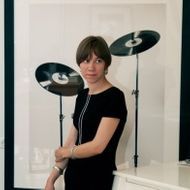Programme Structure

This doctoral school is a new format for doctoral studies at HSE. The aim of the school is to prepare highly qualified researchers by providing a new level of historical knowledge of Russia, while also integrating them into the global academic community.
Fields of study at the School of Historical Sciences at HSE Moscow
5.6.1 "Russian history";
5.6.2 "General History";
5.6.3 "Archeology"
5.6.5 "Historiography, Source Study and Methods of Historical Research"
Field of study at the Department of History at the St. Petersburg School of Social and Human Sciences of HSE St. Petersburg:
5.6.1 "Russian History".
The programme is divided into three years. After the final year, candidates must defend a doctoral thesis.
Once admitted, each candidate must have an academic supervisor and an individual plan.
During the first academic year, students must meet with the doctoral commission three times - the first meeting is for approval of their research topic (January/February); the second is a meeting for the Spring Assessment, where the candidate must show progress made prior to that period (usually in June); and the last is to obtain approval for passing the year (at this meeting, the student presents completed chapter/s reviewed with the his/her supervisor).
In the first year of the doctoral programme, each candidate must pass two state exams: a foreign language test and a Philosophy of Science exam (lessons for preparing for both of these exams are offered by HSE). Furthermore, seminars held during the year have final assessments (the assessment method shall be selected by the professor overseeing a given course).
In the second year, students must take an obligatory state exam, which is a special discipline exam and, as in the first year, any seminars held will be evaluated.
The third year is basically dedicated to writing research and editing one’s doctoral thesis. At the end of October, students must present a defense of their thesis.
Certain classes are devoted to how to organize and conduct research, where students must prepare presentations and share their research with colleagues, thereby helping them to understand what could be improved and further clarified. This sharing of ideas is particularly important for any young academic, as it allows you to understand if you are taking the right path and, if this is not the case, it can help you understand what should be changed in order to improve and be more effective.
The programme offers you the possibility of deeply immersing yourself in the academic and research world, by participating in conferences and seminars, not only at HSE, but also by participating directly in your chosen field of study and providing opportunities to get to know other scholars. The environment is international, as students from different countries have a chance to work together. This presents opportunities for developing a multicultural setting where everyone can share their personal experiences and ideas, thus making each day a moment of individual enrichment. Moreover, students get immersed in a world of open-minded academics who are ready to share their experience and knowledge in response to any question or idea posed by students. Thanks to this approach, positive and productive discussions are possible.


